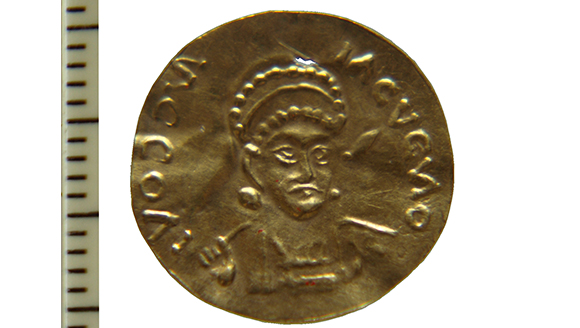Dr Rebecca Darley, a lecturer in medieval history from the Department of History, Classics and Archaeology reviews an international conference on the history of Telangana in Hyderabad, India.
In January 2018, researchers from across the world met in Hyderabad, India for the second international congress uncovering the history of ancient and medieval Telangana. The first, held in 2017, had been inaugurated only three years after Telangana became India’s newest federal state and the first new state to be created since India’s independence in 1947.
Though Telangana is administratively a very new state, its claims to an independent identity are rooted in the antiquity and uniqueness of its culture. These conferences, hosted by the Telangana State Department for Archaeology and Museums, now re-named Heritage Telangana, were therefore aimed at bringing together researchers and the public to celebrate and uncover this past. In particular, the focus on the ancient and medieval periods was intended to provide a sense of the depth of this identity beyond the recent rhetoric of an independence campaign which was, for obvious reasons, rooted in modern grievances and modern decisions about how to establish the states of India.
I was very fortunate to have been at the 2017 gathering as well and it was great to meet new people, see old faces and to be back in one of my favourite cities in the world. My own research focuses on discoveries of Byzantine and Roman coins, minted in the Mediterranean region, but exported to south India in the first seven centuries AD. The State Archaeology Museum in Hyderabad has one of the largest collections of these coin finds in India and many were discovered within what is now Telangana. This was the challenge I had set myself; to interpret these ancient finds through the lens of the modern boundaries of Telangana State.
Mine was the first paper after the elaborate and extremely enjoyable opening ceremonies, and it received a very good response. It was a particular honour to be on a panel with P. V. Radhakrishnan and T. Satyamurthy, both senior scholars whose work I have used and admired for many years.
Being the first paper also meant that I was then free to enjoy the rest of the conference – two days of papers and cultural performances. Director of Heritage Telangana, Smt. N. R. Visalatchy has made it her mission in this post not just to raise the profile of cultural heritage in Telangana, but also to expand its definition, and so academic papers were combined with demonstrations of classical dance and folk musical performance. The range and standard of papers was wonderful, as was the public interest shown in the conference. It would be fair to say that academic conferences in the UK rarely attract a substantial public audience, even when they are open and advertised. By contrast, in both 2017 and 2018, the international meetings on Telangana heritage filled an auditorium with a crowd including journalists, members of learned societies, local history enthusiasts, writers and teachers, as well as archaeologists, academics and heritage workers.
Heritage institutions in India, as in the UK, often have to struggle with budgetary constraints, maintenance of buildings which are themselves heritage structures and recording and cataloguing ever-growing collections. The support given by Telangana State to these conferences is, therefore, most welcome and was an opportunity also to see some of the success stories as excavators reported on ongoing archaeological excavations and developing projects.
Hopefully, there will be a chance to meet again in Hyderabad for the third international conference on Telangana Heritage. My own research, in part as a result of this paper, has raised a wealth of new questions about how Roman and Byzantine coin evidence can reveal social practices and state structures in inland India. There remains much more to say and to discover.


